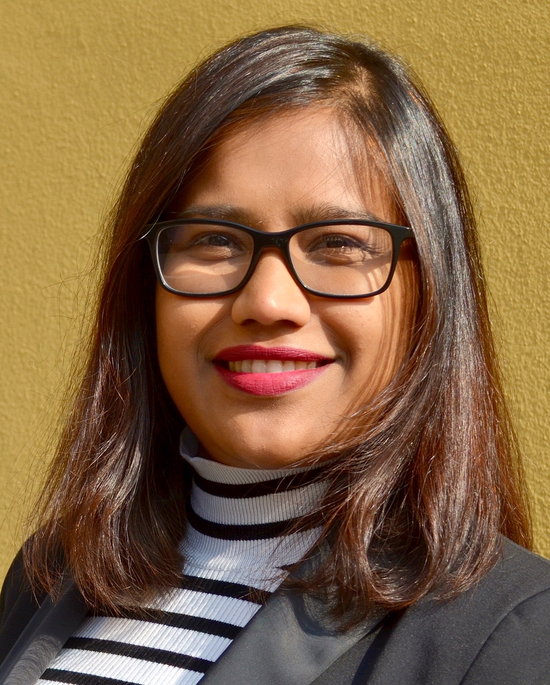
Even though it affects our lives every single day, most of us have no idea what a knowledge graph is. Asking Alexa about the weather tomorrow or searching for the latest news on climate change via Google, knowledge graphs constitute the backbone of today’s state-of-the-art information systems. From improving search results over question answering and recommender systems up to explainable AI systems, the applications of knowledge graphs are manyfold.
Kurssprache: English
English, Deutsch
Big Data and AI, Expert
Kursinformationen
In this course you will learn what is necessary to design, implement, and use knowledge graphs. The focus of this course will be on basic semantic technologies including the principles of knowledge representation and symbolic AI. This includes information encoding via RDF triples, knowledge representation via ontologies with OWL, efficiently querying knowledge graphs via SPARQL, latent representation of knowledge in vector space, as well as knowledge graph applications in innovative information systems, as e.g., semantic and exploratory search.
General Course Information:
- Course language: English
- Weekly workload: 3 - 4 hours (Depending on your level of knowledge, this time may vary)
- Course duration: 6 weeks from October 27 to December 8, 2020
- Deadline for the Final Exam: December 14, 2020 (11:55pm UTC)
Requirements for this Course:
- Basic understanding of web technologies, such as URL and HTTP
- Basic understanding of mathematics, in particular statistics and probability theory
- Basic knowledge of database technology, such as relational databases and SQL query language
Intended Audience:
- Students of computer science or related subjects at bachelor or master level
- Researchers and scientists interested in the web, knowledge representation, semantic web technologies, ontology engineering, machine learning, artificial intelligence
- Young professionals, in particular knowledge engineers, data & web scientists
- Students, researchers and professionals in the field of digital humanities and cultural heritage (e.g. working in archives, libraries, and museums)
Teaching Team
The course is run by the research group Information Service Engineering of FIZ Karlsruhe and Karlsruhe Institute of Technology (AIFB).
Social Media
Follow FIZ ISE on Twitter @fiziseka
Follow openHPI on Twitter: @openHPI
For tweets about this course please use the hashtag #knowledgegraphs2020
Visit us on Facebook: https://www.facebook.com/OpenHPI
You can find more video lectures at www.tele-task.de.
Attention: This course is currently in self-study mode, in which you do not have access to graded assignments/exams. Therefore, we can only issue you a certificate of participation.
Lernmaterial
Week 1:
Knowledge Graphs in the Web of DataWeek 2:
Basic Semantic TechnologiesWeek 3:
Querying RDF with SPARQLWeek 4:
Knowledge Representation with OntologiesWeek 5:
Knowledge Graph ApplicationsWeek 6:
Advanced Knowledge Graph ApplicationsFinal Exam
Für diesen Kurs einschreiben
Lernende
Bewertungen
Der Kurs wurde mit durchschnittlich 4.72 Sternen bei 46 abgegebenen Stimmen bewertet.
Anforderungen für Leistungsnachweise
- Das Zertifikat erhält, wer es gebucht hat und den Leistungsnachweis erhalten hat. Mehr Informationen finden Sie in den Richtlinien für das Zertifikat.
- Den Leistungsnachweis erhält, wer in der Summe aller benoteten Aufgaben mindestens 50% der Höchstpunktzahl erreicht hat.
- Die Teilnahmebestätigung erhält, wer auf mindestens 50% der Kursunterlagen zugegriffen hat.
- Einen Open Badge erhalten Sie, indem Sie den Kurs abschließen.
Mehr Informationen finden Sie in den Richtlinien für Leistungsnachweise.
Dieser Kurs wird angeboten von

Harald Sack ist Professor für Information Services Engineering bei FIZ Karlsruhe - Leibniz-Institut für Informationsinfrastruktur und Karlsruher Institut für Technologie. Nach dem Abschluss seines Informatikstudiums an der Universität der Bundeswehr München im Jahr 1990 arbeitete er von 1990 bis 1997 als System-/Netzwerkingenieur und Projektleiter im Fernmeldeaufklärungsdienst der Bundeswehr. Im Jahr 1997 wurde er assoziiertes Mitglied des Graduiertenprogramms 'Mathematische Optimierung' an der Universität Trier, wo er 2002 in Informatik promovierte. Von 2002-2009 arbeitete er als PostDoc an der Friedrich-Schiller-Universität in Jena. Von 2009 bis 2016 arbeitete er als Senior Researcher und Leiter der Forschungsgruppe 'Semantische Technologien' am Hasso-Plattner-Institut für IT-Systemtechnik (HPI) an der Universität Potsdam.
Seine Forschungsgebiete umfassen semantische Technologien, Wissensgraphen und Wissensrepräsentationen, Ontological Engineering, Wissensextraktion, maschinelles Lernen, semantische und explorative Suche.
Er ist Gründungsmitglied und Generalsekretär des 2008 gegründeten Deutschen IPv6-Rates. Er war als Senior PC-Mitglied oder PC-Mitglied zahlreicher internationaler Konferenzen und Workshops im Bereich semantischer Technologien sowie als Programmleiter, wissenschaftlicher Leiter oder allgemeiner Leiter tätig.
Harald Sack hat mehr als 200 Artikel in internationalen Zeitschriften und Konferenzen veröffentlicht, darunter drei Standardlehrbücher über Netzwerktechnologien. Er ist Mitbegründer der yovisto GmbH (www.yovisto.com).

Dr. Mehwish Alam is a Post-Doctoral Researcher/Senior Researcher at FIZ Karlsruhe - Leibniz Institute for Information Infrastructure and Karlsruhe Institute of Technology (KIT), Institute of Applied Informatics and Formal Description Methods (AIFB) in Information Service Engineering team. Before that she has conducted her Post-Doctoral Research at Laboratoire d'Informatique de Paris-Nord (LIPN), Paris, France (2016-2017) and Consiglio Nazionale delle Ricerche (CNR), Rome, Italy (2017-2019). The focus of her research is the development/application of Machine & Deep Learning techniques for Knowledge Graphs and Natural Language Processing.